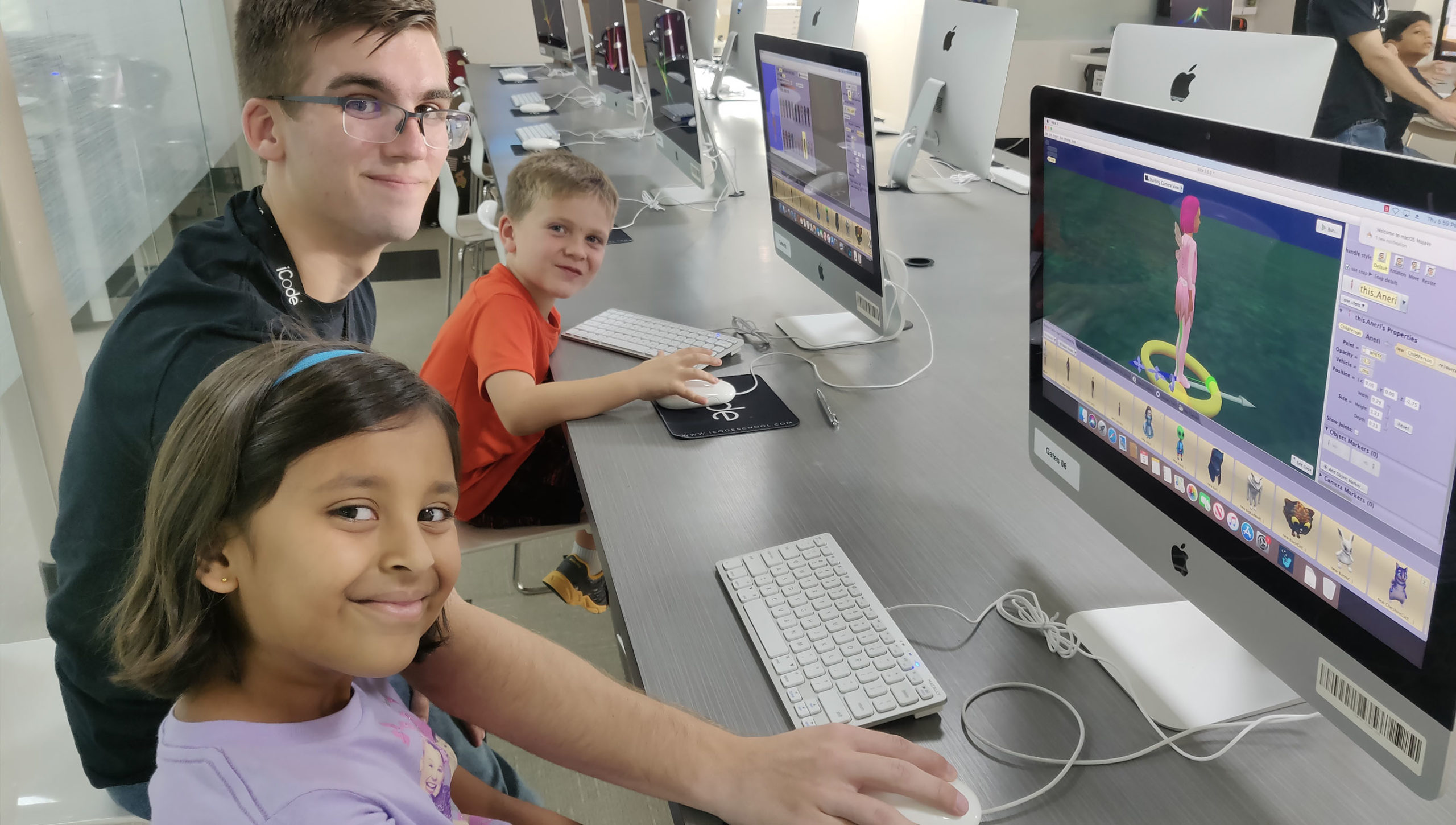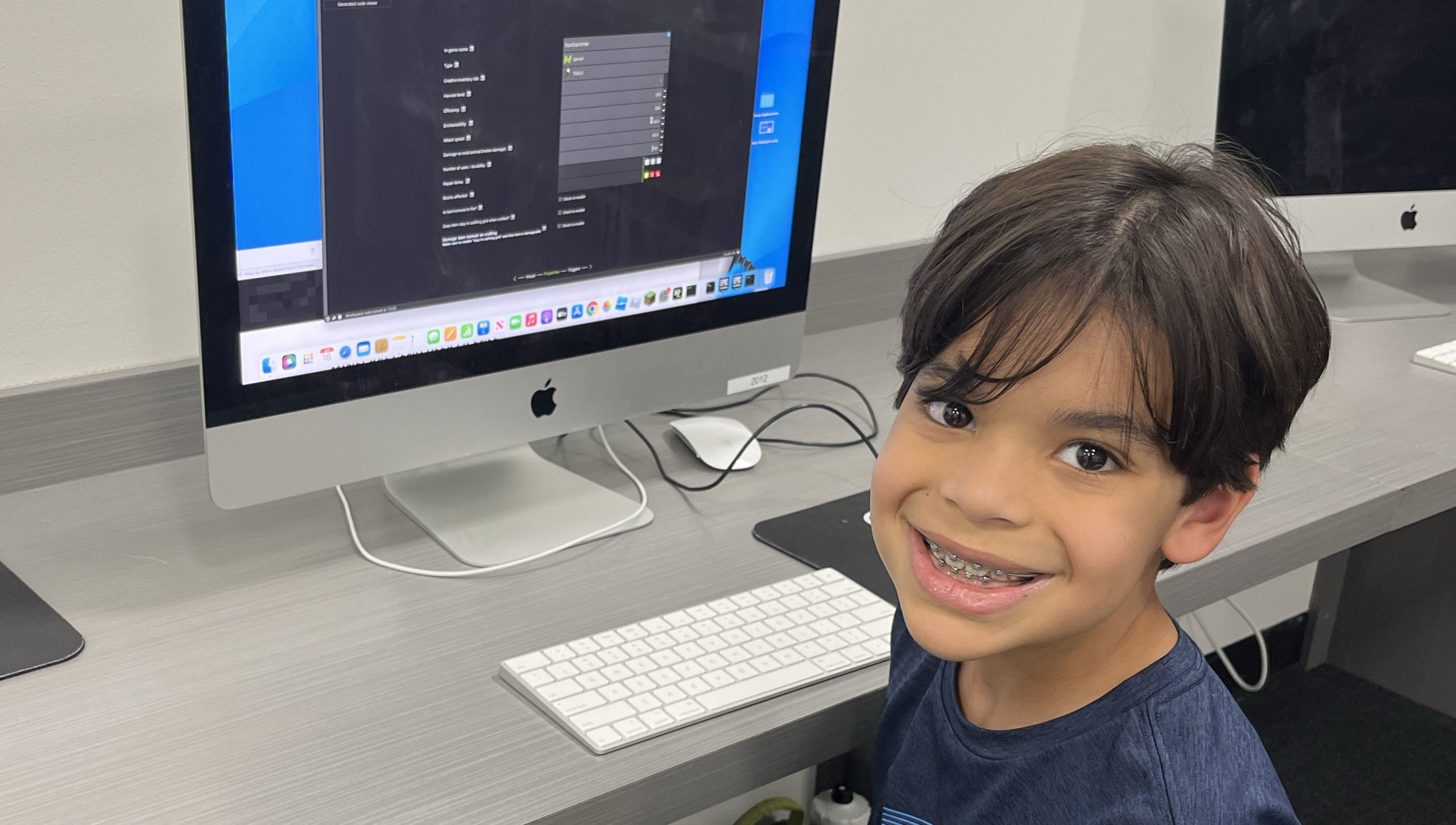Why Gamified Learning at iCode is the Future of STEM Education
Founded in 2015 in Frisco by Abid Abedi, a father who wanted to create an after-school program that kids would love rather than dread, iCode has grown into a nationwide phenomenon. With programs in STEM, coding, robotics, gaming, and more, iCode combines education and entertainment to keep children ahead of the curve in today’s fast-paced technological world.
Watch This Video About iCode from CW33
Abedi, a father of three daughters, understood the importance of designing a welcoming and exciting place for children to learn. He envisioned a space where kids could develop both technical and soft skills, such as communication, in an environment that felt more like a playground than a classroom. “Over the last several decades, the traditional way of teaching hasn’t changed. As a result, our children are falling further and further behind while our culture and tech continue to rapidly advance beyond what is taught in the traditional classroom,” Abedi explains.
As iCode celebrates its 100th education franchise location and projects to double by the end of 2024, it’s clear that their innovative approach is resonating with parents and children alike. Whether it’s after-school learning opportunities or summer camps, iCode’s programs are crafted to make learning fun, interactive, and deeply impactful.
Understanding Gamified Learning
Definition and Components
At its core, gamified learning is the process of incorporating game-like elements into educational activities to make them more engaging and enjoyable. Think of it as turning a traditional classroom into a dynamic video game, where students earn points, unlock levels, and compete on leaderboards. Just like in their favorite video games, children get immediate feedback and rewards, which keeps them motivated and eager to learn.
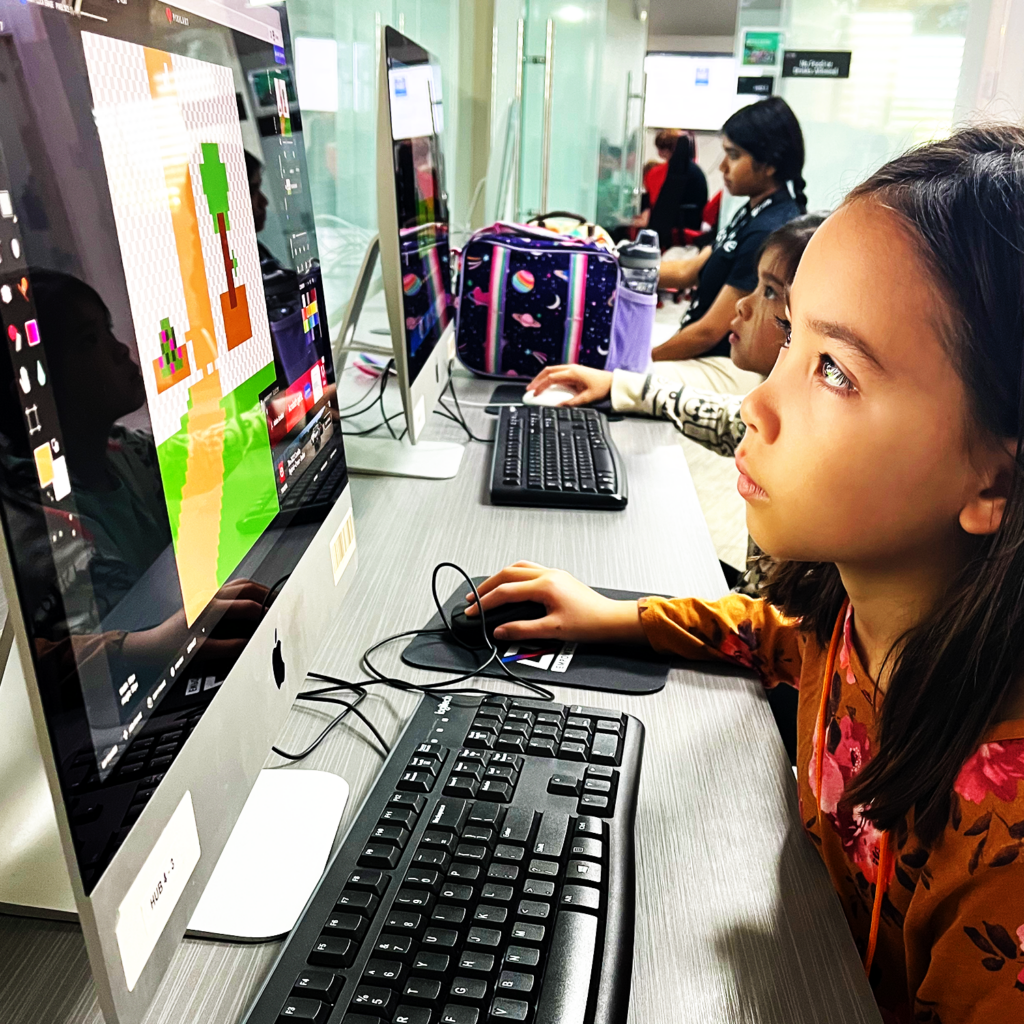
Imagine your child, who loves playing Minecraft, now using similar principles to learn coding. Instead of merely reading about coding concepts, they embark on quests, solve puzzles, and build virtual worlds, all while mastering the intricacies of programming languages. The excitement of earning badges and progressing through levels transforms learning from a chore into an adventure.
Educational Benefits
Gamified learning isn’t just about making education fun; it’s about making it effective. Studies show that children retain information better when they are actively engaged in the learning process. Gamification taps into this by providing a hands-on, interactive experience that enhances understanding and retention.
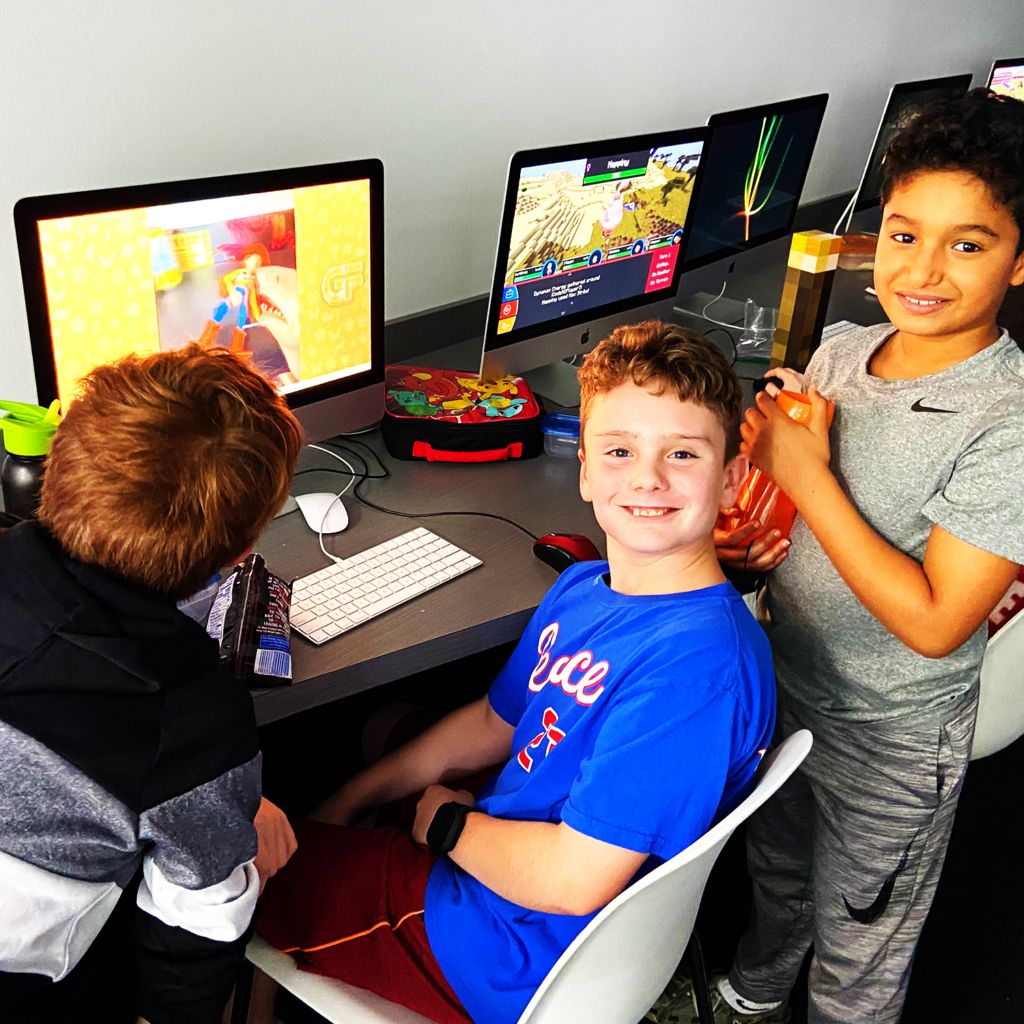
For example, in a gamified coding class at iCode, students might work on a project where they create a simple game or app. As they encounter challenges, they must apply critical thinking and problem-solving skills to find solutions, much like they would in a real-world scenario. This practical application helps solidify their knowledge and prepares them for future academic and career pursuits.
Real-World Application
The skills gained through gamified learning go beyond the classroom. By engaging in activities that mimic real-world tasks, children develop essential skills that will serve them well in their future careers. For instance, a child who excels in a gamified robotics project at iCode may find themselves well-prepared for a career in engineering or technology.
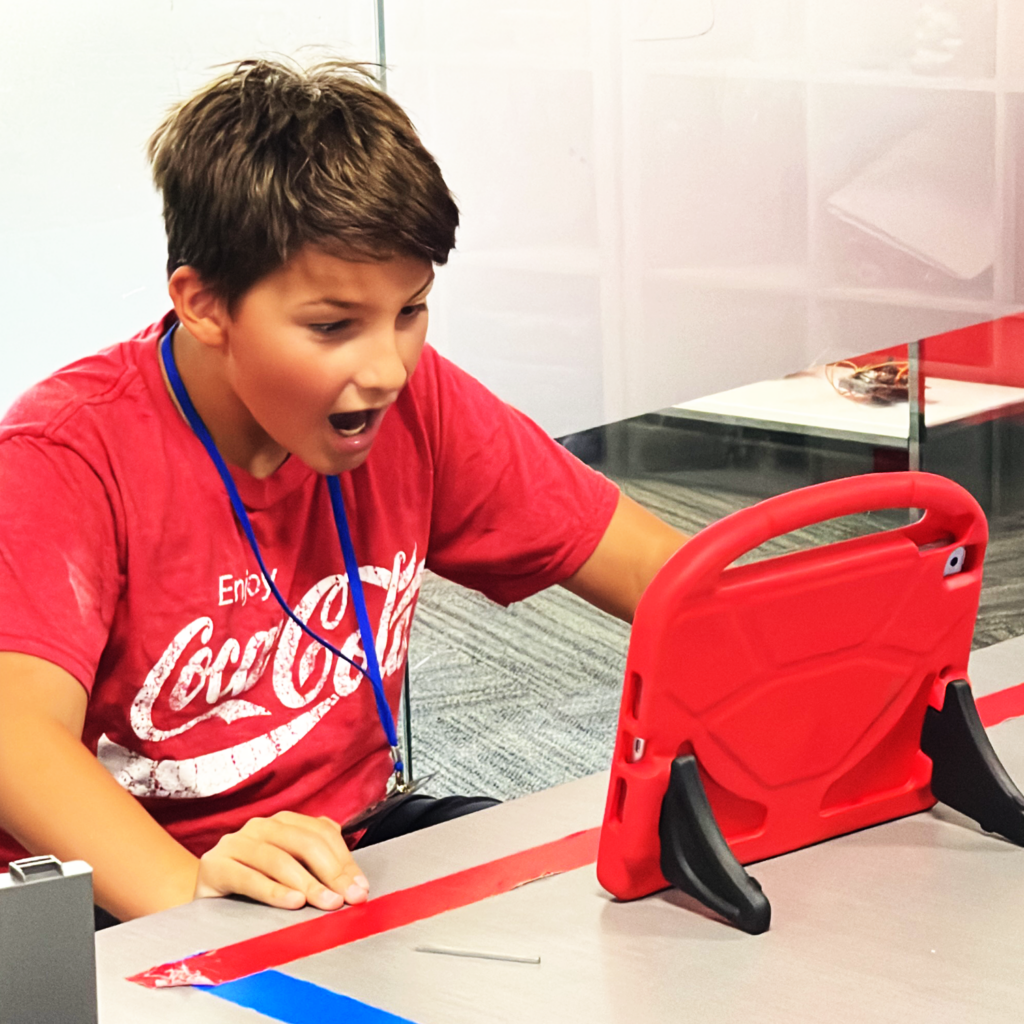
Gamified Learning in Coding and Robotics
Coding
Imagine your child embarking on a coding adventure where they don’t just learn to code—they live it. At iCode, coding classes are designed to feel like immersive quests. Using platforms like Scratch, Roblox, and Minecraft, students dive into coding challenges that require them to solve puzzles, create animations, and build entire virtual worlds.
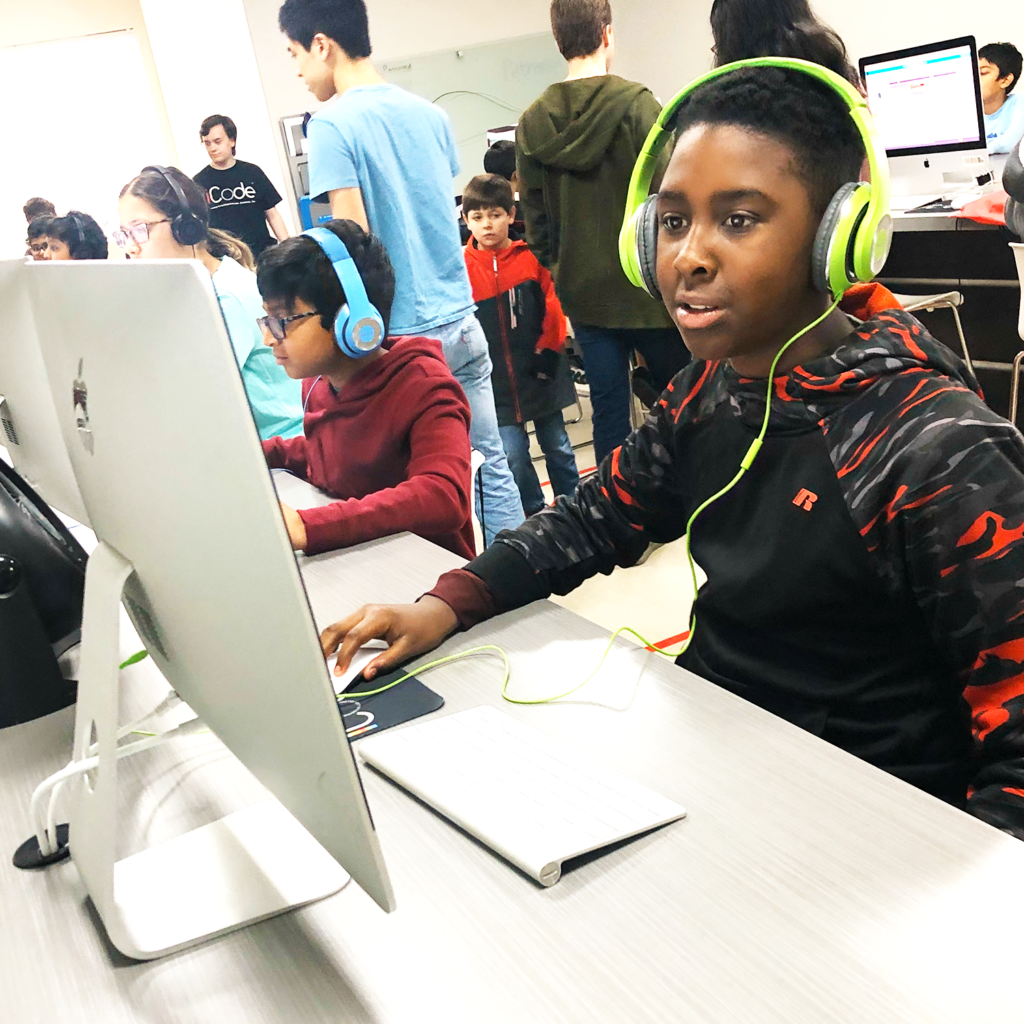
For instance, in a typical Scratch class, students might be tasked with creating their own game. They start with a simple concept, like a maze, and use coding blocks to bring it to life. As they progress, they earn points and badges for each successfully completed task, making the learning process both challenging and rewarding. These gamified elements keep children engaged and motivated, turning what might seem like a complex subject into an exciting adventure.
Robotics
The world of robotics at iCode is equally thrilling. Picture a room full of kids working together to build and program robots that can complete various tasks, from navigating a maze to competing in a friendly battle bot tournament. Using tools like VEX Robotics, students learn the fundamentals of engineering and programming through hands-on, gamified projects.
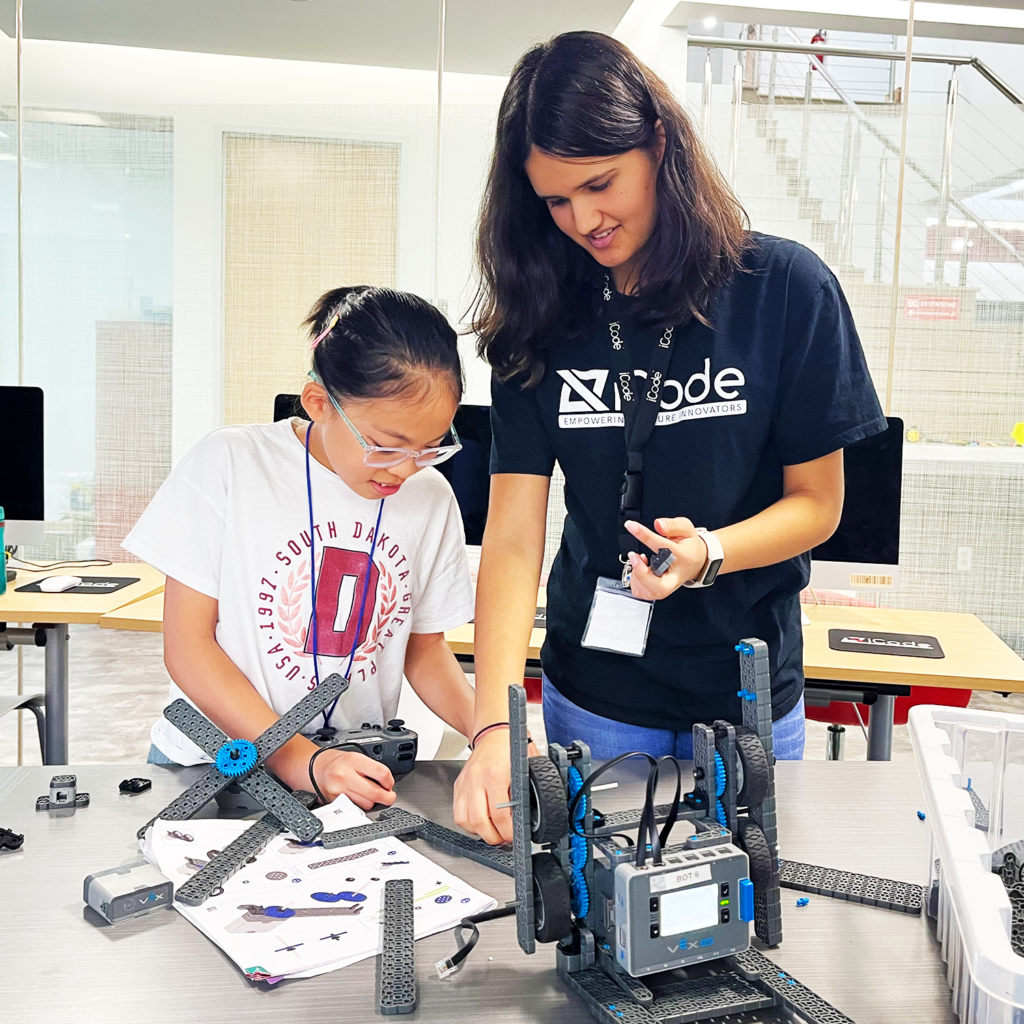
One standout example is the drone programming course, where students learn to code drones to perform aerial maneuvers. The class is structured as a series of missions, each with increasing levels of difficulty. Students must use their coding skills to program their drones to navigate obstacle courses, deliver payloads, or even engage in drone races. These activities not only teach technical skills but also foster teamwork, problem-solving, and strategic thinking.
Benefits of Gamified Learning for Your Child
Enhanced Engagement
Gamified learning at iCode keeps children on the edge of their seats, eagerly anticipating the next challenge. The game-like elements—such as earning points, unlocking achievements, and leveling up—provide a constant stream of rewards that keep students motivated. This level of engagement is often missing in traditional learning environments, making gamified learning a powerful tool for sustaining interest and enthusiasm.
Skill Development
Through gamified learning, children develop a range of valuable skills that extend beyond academic knowledge. Coding challenges enhance logical thinking and problem-solving abilities, while robotics projects foster creativity and innovation. These activities also encourage perseverance, as students learn to tackle increasingly difficult tasks without giving up.
Social and Emotional Growth
The collaborative nature of many gamified learning activities helps children build essential social skills. Working on team projects, competing in friendly challenges, and sharing their achievements with peers all contribute to their social and emotional development. At iCode, children learn the importance of communication, teamwork, and leadership in a supportive and fun environment.
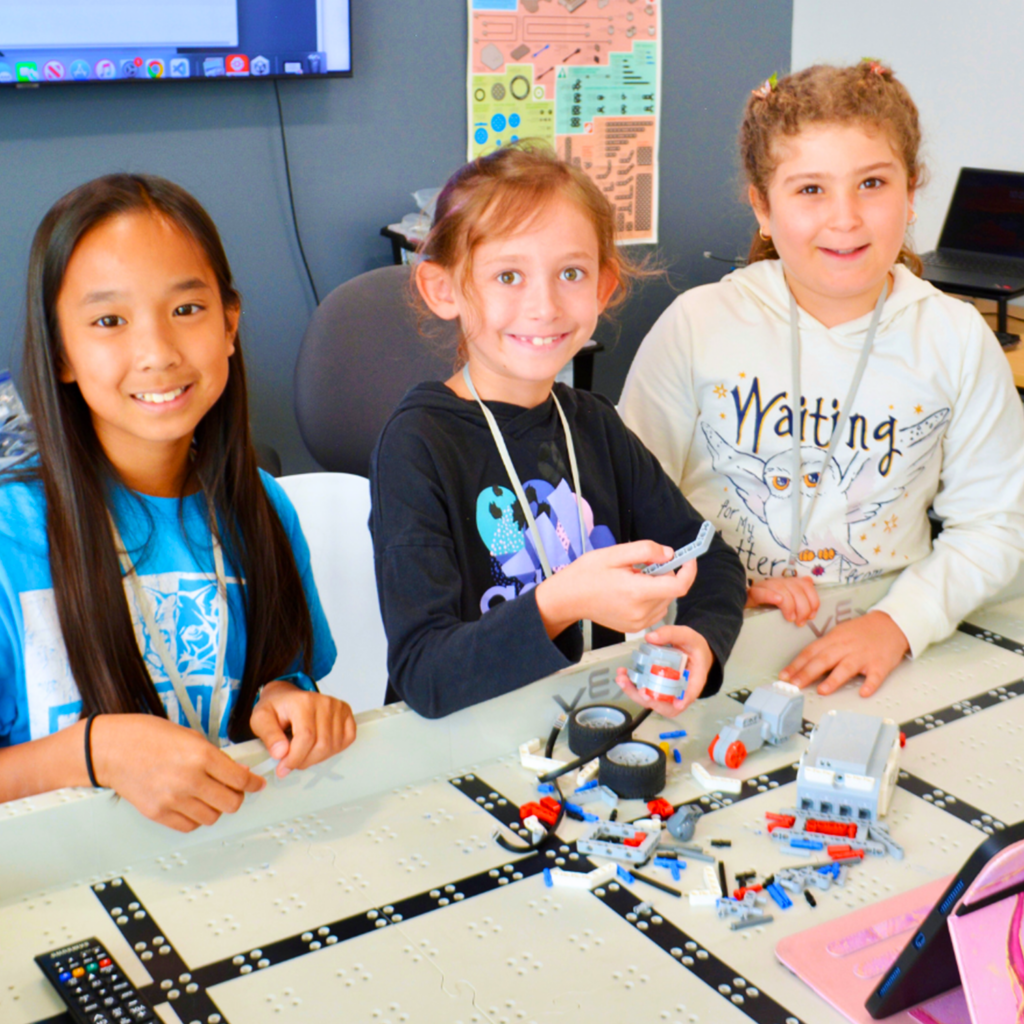
In summary, gamified learning at iCode offers a unique and effective way to engage children in STEM education. By integrating game-like elements into the learning process, iCode ensures that students are not only acquiring valuable knowledge and skills but also enjoying the journey. Whether it’s coding, robotics, or other STEM subjects, gamified learning keeps children motivated, engaged, and prepared for future success.
As a parent, you have the opportunity to give your child a head start in the fast-paced world of technology. Explore iCode’s programs and see firsthand how gamified learning can transform your child’s educational experience. Sign up for a trial class or workshop today and watch your child embark on an exciting adventure in STEM.
Recommended Blogs
iCode Loyalty Points: How to Redeem, Shop, and Connect Your Child’s Social Media (Step-by-Step for Parents!)
Hi Parents, Your child is earning loyalty points at iCode—and now, you can easily use those points to save on class enrollments or shop for fun items in our store! Plus, connecting your child’s social media accounts helps them earn even more rewards. Here’s a detailed, easy-to-follow guide (with pictures and videos!) on how to do it all. ✅ Part 1: Redeem Loyalty Points When You Enroll in Classes You can use loyalty points while enrolling in classes—whether through our website or the Parent Portal. Option 1: From the Website Pick a Class: Go to the iCode website and pick the class your child wants to join. Log In: After clicking Continue, select "Already a customer" and log in with your Parent Portal username and password. Apply Loyalty Points: On the payment page, you’ll see the option to Redeem your points. You will see how many points are available for each student, along with the dollar value. Select & Redeem: Choose the number of points you'd like to use and click Redeem. The total will automatically reduce by the amount covered by points. 💡 Look for the small eye icon—hovering over it will show how much was paid using points.…
What is Coding For Kids? Ultimate Guide For Parents | iCode
Coding (AKA computer programming) is wildly popular for kids today. Society relies on technology for virtually everything. Entire industries are falling away due to automation. But this isn’t necessarily a bad thing. It’s time to think about how to set your young child up for these new opportunities and success in the future by teaching kids coding and the basics of computer science.As technological advancements continue to evolve over the decades to come, coding will become a critical skill.Kids who learn basic coding skills today will have less to fear from artificial intelligence (AI) and automation because they will code the next AI programs instead of being replaced by them.But what exactly is coding and how can you teach it to your kids? That’s what we’ll cover in this article. What is Coding for Kids? Coding refers to computer programming. Some people call this “writing code.” Computer programs are created from many lines of text and numbers (code). When code is written in the proper order in the appropriate software program, the software can execute whatever command the code represents. For instance, in a software program that accepts HyperText Markup Language (HTML) writing <br> is like hitting the enter key when typing…
9 Coding Activities for Kids | iCode
Coding presents many amazing opportunities for younger kids as they develop their understanding of computer science. Whether you’re looking for coding games for 10 year olds or early teens, there’s an activity for every age range and level of expertise. Today, we’ll share some coding activities and learning resources for kids based on their individual needs. These resources offer great instruction as kids start to enhance their coding language skills. Types of Coding Activities for Kids So, what is coding for kids, and what are the best ways for them to learn? Let’s start by talking about some of the different types of coding activities for kids that you might run into. It always helps to know your options before making a decision.Generally speaking, kids’ coding games fall into three categories:IntroductoryIntermediateAdvancedIntroductory activities are for kids who are just starting out. They have little to no experience with coding, and they need to learn simple, fundamental coding concepts that they can build upon.Intermediate activities are for kids who have some experience and are ready to step up to the next level. These activities help expand and grow a child’s coding skills as they move toward becoming fluent in coding.Advanced activities are…



